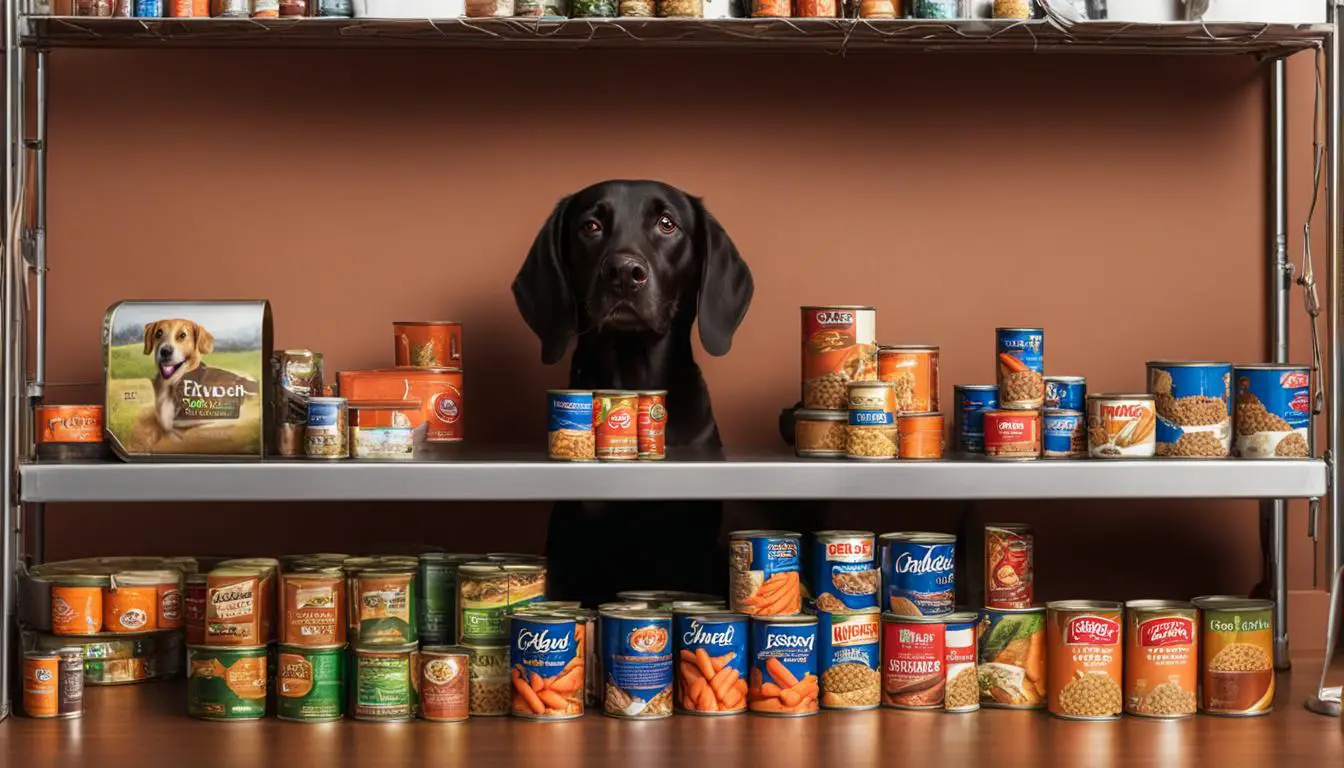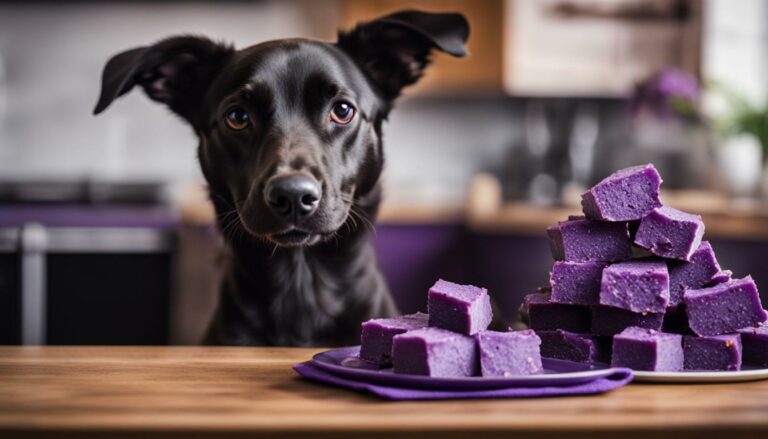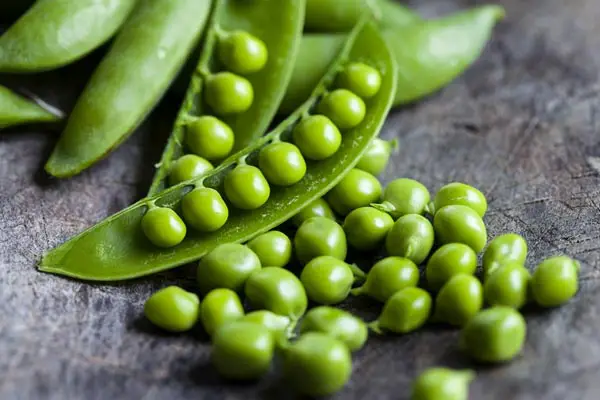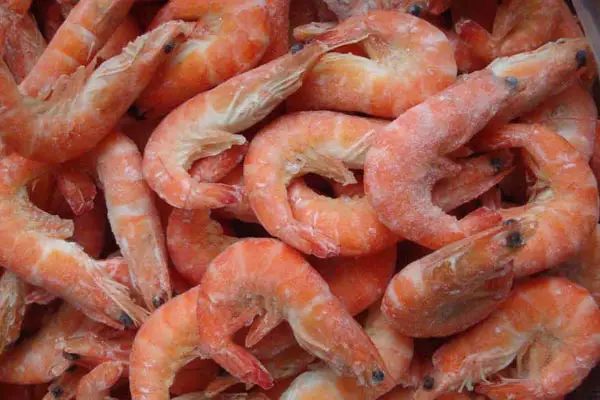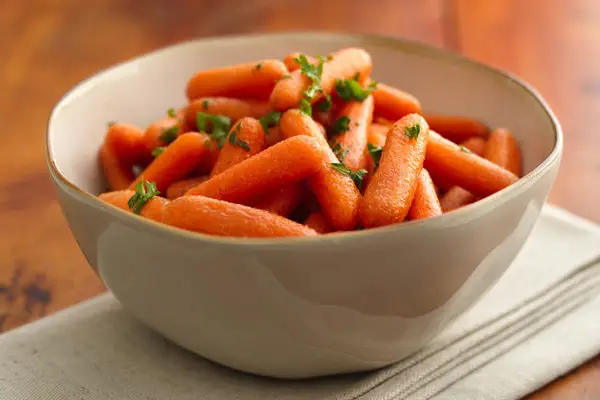Can Dogs Eat Canned Carrots? A Comprehensive Guide
Dog owners often wonder whether feeding their furry friend’s canned carrots is safe. This comprehensive guide will explore the benefits and considerations of including canned carrots in a dog’s diet.
We’ll cover dog nutrition, the appropriate amount of carrots to feed, and other safe human foods for dogs. So, if you’re curious about whether dogs can eat canned carrots, keep reading to find out!
The Benefits of Carrots for Dogs
Carrots offer several benefits to dogs, making them a valuable addition to their diet. Not only are carrots a low-calorie treat, but they also provide a range of essential nutrients that support canine health and well-being. Here are some of the critical benefits of carrots for dogs:
1. Rich in Vitamins and Minerals
Carrots with essential vitamins and minerals contribute to a dog’s overall nutrition. They are exceptionally high in vitamin A, which promotes good eye health and boosts the immune system. Carrots also contain potassium, which supports heart health, and fiber, which aids digestion.
2. Promote Dental Health
Chewing on carrots can help keep a dog’s teeth clean and healthy. The natural crunchiness of carrots can help reduce plaque buildup and massage the gums, promoting good oral hygiene. For teething puppies, frozen carrot chunks can provide soothing relief.
3. Source of Antioxidants
Carrots contain antioxidants, such as beta-carotene, which help protect cells from damage caused by free radicals. Antioxidants are crucial in reducing the risk of certain diseases and promoting overall health. Including carrots in a dog’s diet can contribute to their antioxidant intake.
4. Weight Management
As a low-calorie snack, carrots can be an excellent option for dogs that need to manage their weight. They offer a satisfying crunch without adding excessive calories to their diet.
Carrots can be used as a healthy alternative to high-calorie treats during training or as rewards for good behavior.
| Benefit | Description |
|---|---|
| Vitamins and Minerals | Carrots are rich in vitamin A, potassium, and fiber, providing essential nutrients for dogs. |
| Dental Health | Chewing on carrots can help clean teeth and promote good oral hygiene. |
| Antioxidants | Carrots contain antioxidants that protect against cell damage and support overall health. |
| Weight Management | As a low-calorie snack, carrots can be a healthy option for dogs watching their weight. |
How to Incorporate Carrots into Your Dog’s Diet
Here are some tips on how to introduce carrots to your dog’s meals and snacks:
1. Cut carrots into bite-size chunks
To ensure your dog’s safety and prevent choking, cutting carrots into small, bite-size pieces is essential. This is especially crucial for smaller dogs with difficulty chewing larger chunks. By doing this, you can make the carrots more easily digestible and enjoyable for your furry friend.
2. Wash and peel carrots
Before feeding carrots to your dog, it’s essential to wash them thoroughly to remove any dirt or pesticides. Additionally, peeling the carrots can help eliminate any potential contaminants.
3. Consult with a veterinarian
Talk to a vet before giving your dog carrots or any new food. They’ll give advice based on your dog’s breed, size, age, and health. If you have worries about carrots, the vet can help with that, too.
Other Safe Human Foods for Dogs
Here are some examples of safe foods for dogs:
Fruits:
- Blueberries: Rich in antioxidants and low in calories, blueberries can be a healthy and tasty snack for dogs.
- Watermelon: A refreshing fruit that is mostly water, watermelon can provide hydration and vitamins while being low in calories.
Vegetables:
- Sweet potatoes: Cooked and mashed sweet potatoes are a good source of fiber, vitamins, and minerals.
- Green beans: Steamed or boiled green beans are a low-calorie and fiber-rich option for dogs.
It’s important to note that not all human foods are safe for dogs. Some foods like grapes, onions, chocolate, and macadamia nuts can be toxic to dogs and should be avoided.
Before introducing new foods into a dog’s diet, it’s always best to consult a veterinarian to ensure they are safe and appropriate for your pet.
Moderation and Monitoring
Feeding too many carrots can lead to digestive issues such as gas, bloating, diarrhea, or constipation. In addition, an excessive intake of certain nutrients like fiber or sugar can have negative health effects on dogs.
The appropriate amount of carrots or other food will vary depending on the dog’s breed, age, weight, and overall health.
It’s always best to consult a veterinarian to determine the correct portion sizes and balance of nutrients for an individual dog. Their expertise will help you provide your furry friend with a well-rounded and nutritious diet.
Portion Control
Portion control is essential when feeding carrots or any other food to dogs. While carrots are a healthy snack, they should be given in moderation to avoid overfeeding.
A good rule of thumb is to treat carrots as a supplement to your dog’s regular meals rather than a replacement.
This ensures they receive a balanced diet that meets all their nutritional needs. Remember, carrots should not make up a significant portion of a dog’s daily caloric intake.
Monitor for Adverse Reactions
Monitoring your dog for adverse reactions is crucial when introducing new foods into their diet.
While carrots are generally safe for dogs, observing them for any signs of allergic reactions, such as itching, vomiting, or diarrhea, is essential.
If you notice any unusual symptoms following carrot consumption, it’s advisable to seek guidance from a veterinarian to eliminate potential underlying health concerns.
Delicious and Safe Ways to Serve Carrots to Your Dog
Here are some delicious and safe ideas for serving carrot-based dog treats and snacks:
1. Raw or Steamed Carrots:
Raw or steamed carrots can be served as standalone snacks. Wash and peel the carrots, then cut them into small, bite-sized pieces. Your dog will enjoy the satisfying crunch while benefiting from the vitamins and minerals in carrots.
2. Frozen Carrot Chunks:
Frozen carrot chunks can provide soothing relief if you have a teething puppy. Cut the carrots into small chunks and freeze them. The cold temperature can help alleviate discomfort and encourage healthy chewing habits in your puppy.
3. Carrot Puree and Toppers:
You can puree carrots and incorporate them into your dog’s meals. This can be done by blending cooked carrots with water or low-sodium broth until smooth. Add a spoonful of carrot puree as a topper to your dog’s regular food to enhance their meal’s flavor and nutritional value.
4. Homemade Carrot Treats:
Several carrot-based recipes are available for those who enjoy making their dog treats. Consider baking carrot and oat cookies or mixing pureed carrots with dog-friendly ingredients like peanut butter or pumpkin. Just make sure to avoid adding any seasonings, salts, or oils that could harm your dog.
Conclusion
Carrots play a valuable role in a dog’s nutrition and overall health. Incorporating vegetables, such as carrots, into a dog’s diet can provide essential nutrients and contribute to their well-being. Carrots are packed with vitamins, minerals, and fiber, making them a nutritious addition to their meals.
However, it is crucial to practice portion control and monitor for any adverse reactions when feeding carrots to dogs. While carrots are generally safe, it is always best to consult a veterinarian for personalized advice on incorporating vegetables into a dog’s diet.
FAQ
Can dogs safely eat canned carrots?
Yes, dogs can safely eat canned carrots as a healthy, low-calorie snack.
How do carrots benefit dogs?
Carrots are a nutritious addition to a dog’s diet, packed with vitamin A, potassium, and fiber. They promote dental health, and chewing frozen carrots can relieve teething puppies.
How should carrots be prepared before feeding them to dogs?
Cut carrots into bite-size chunks to prevent choking, and wash and peel them to remove dirt or pesticides.
How much carrots can a dog eat per day?
The appropriate amount of carrots or other food will vary depending on the dog’s breed, age, weight, and overall health. It is recommended to consult with a vet for guidance on the appropriate amount of carrots to feed a dog.
What are some other safe human foods for dogs?
Some other safe human foods for dogs include fruits like blueberries and watermelon, cooked eggs and boneless salmon, and peanut butter (without added salt).
Are there any foods that dogs should avoid?
Yes, dogs should avoid foods like grapes, onions, chocolate, and macadamia nuts, as these can be toxic.
Can feeding too many carrots be harmful to dogs?
Feeding too many carrots can lead to digestive issues like gas, bloating, diarrhea, or constipation. It is important to practice moderation and monitor portion sizes.
How can carrots be served to dogs?
Carrots can be served raw or steamed as standalone snacks, frozen for teething relief, pureed and added to recipes, or used as a topper for meals. Homemade carrot treats can also be made.
What is the role of carrots in a dog’s diet?
Carrots and other vegetables can provide essential nutrients and contribute to a dog’s overall health and well-being when incorporated into their balanced and nutritious meals.
